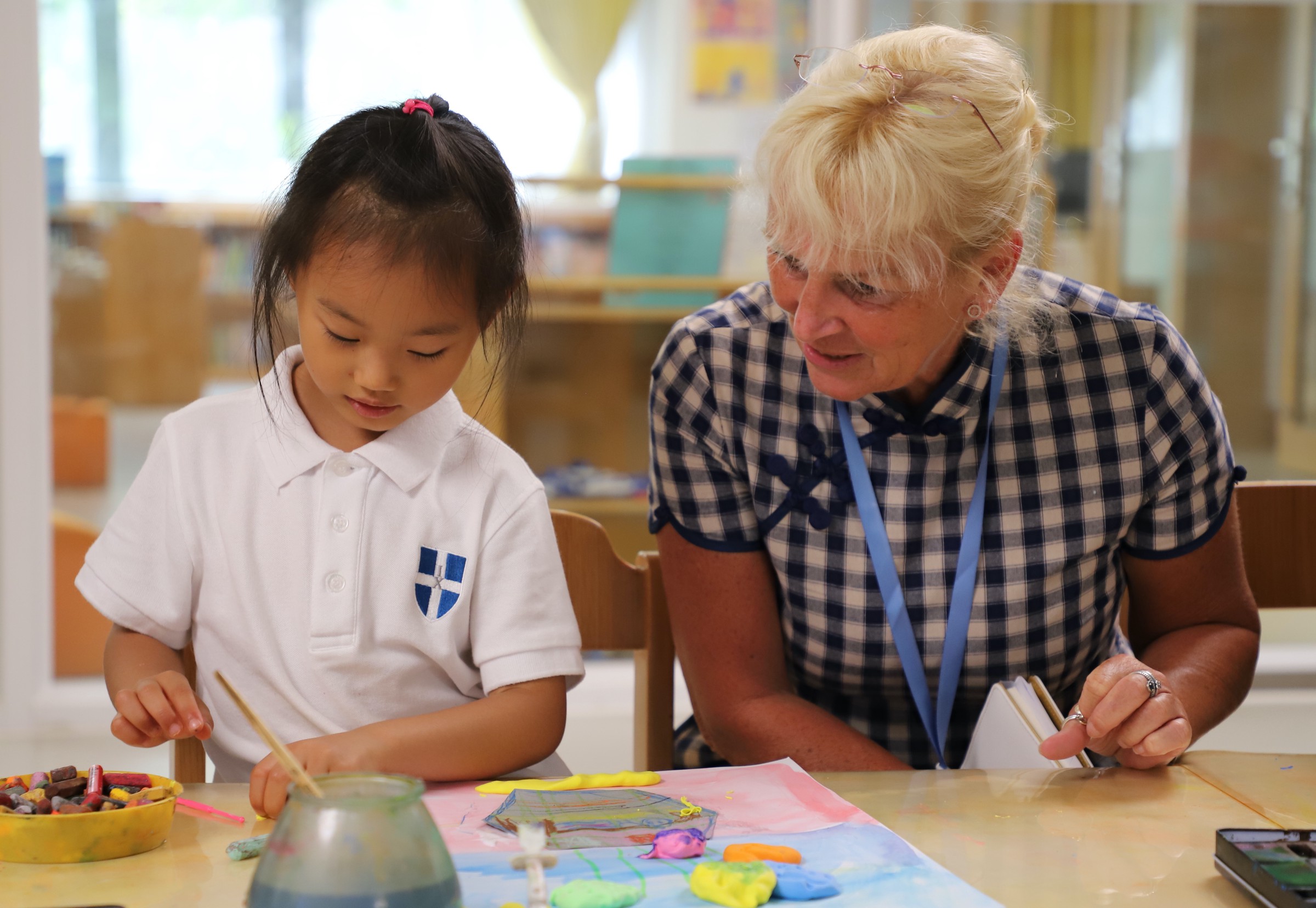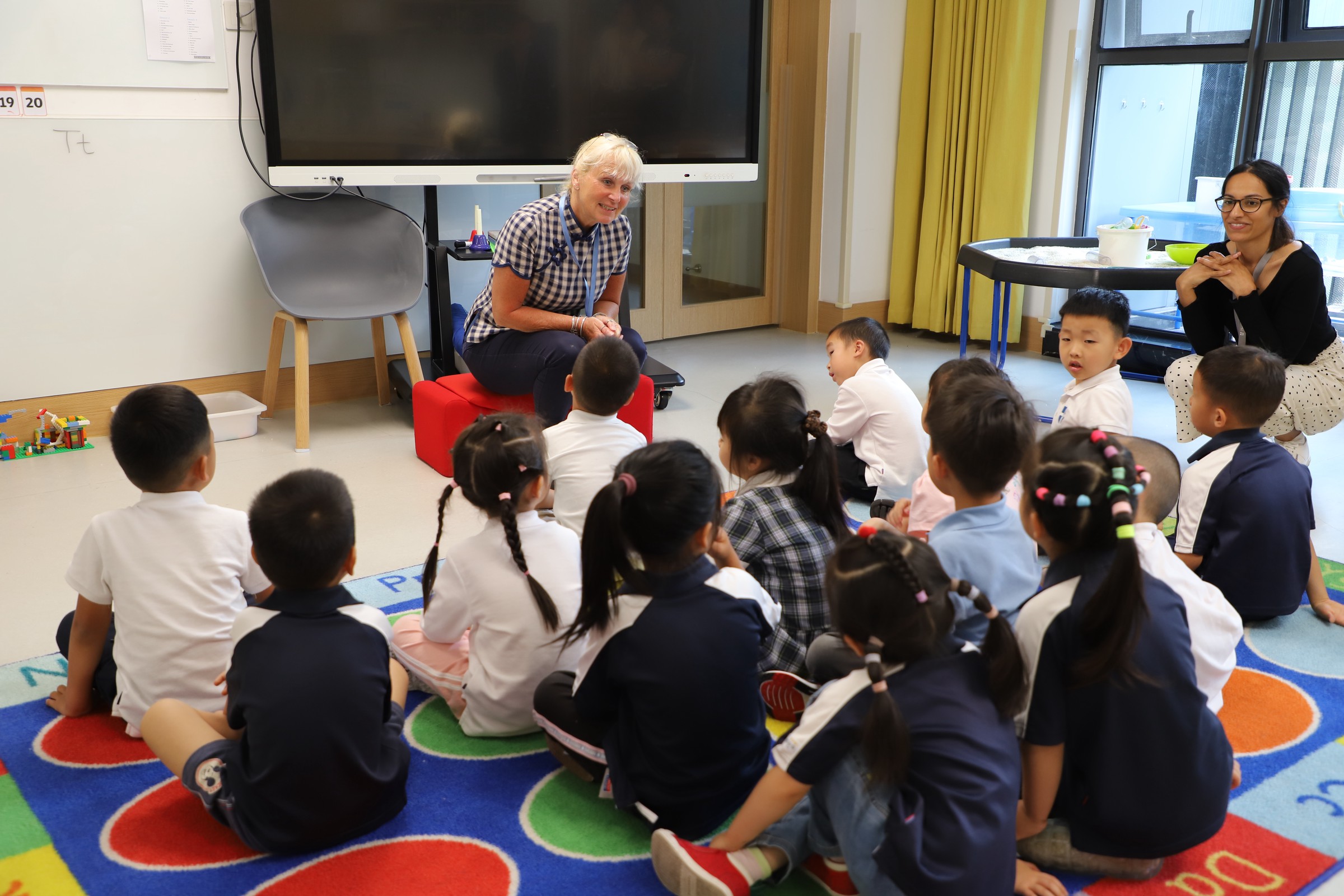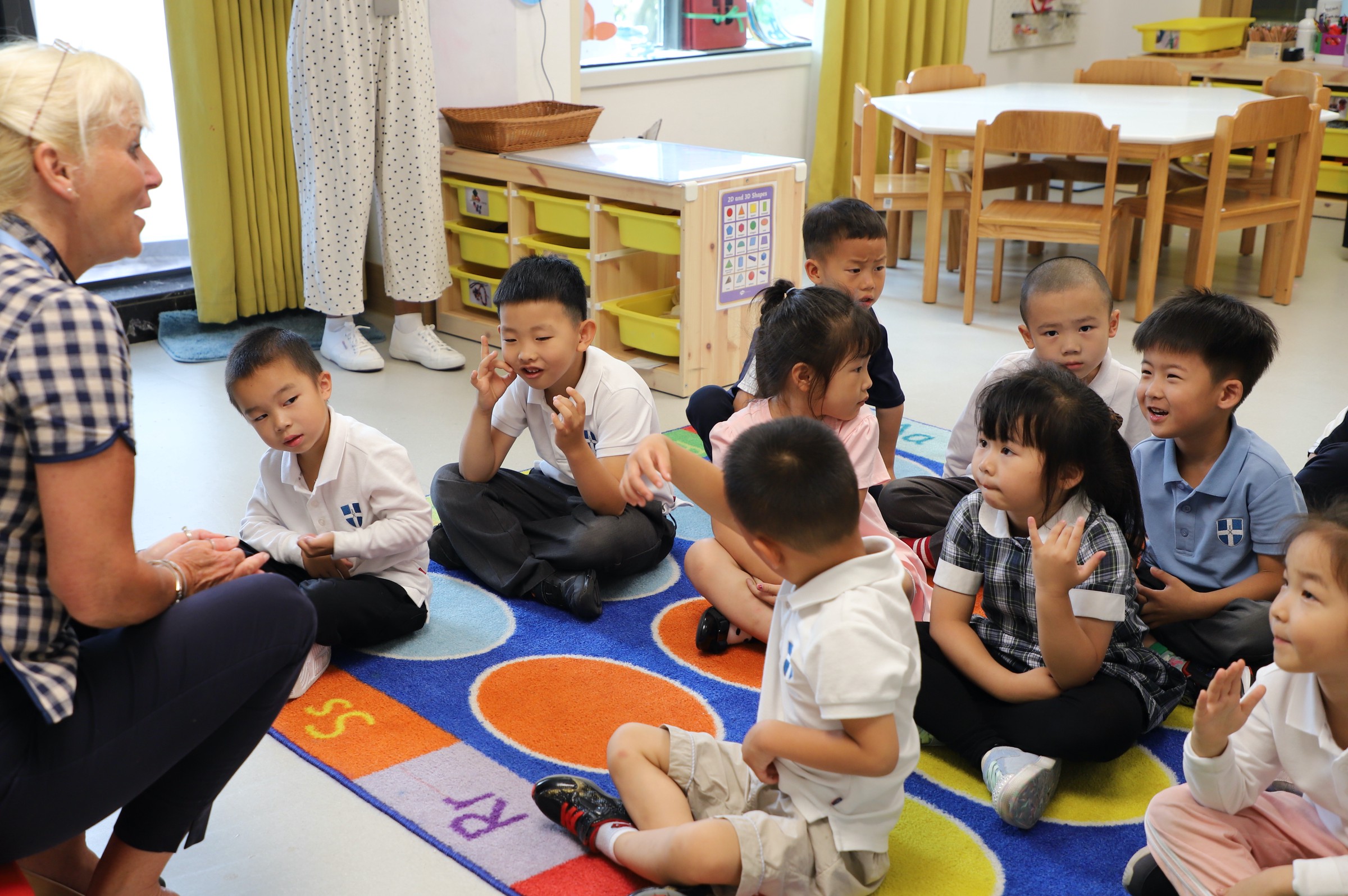
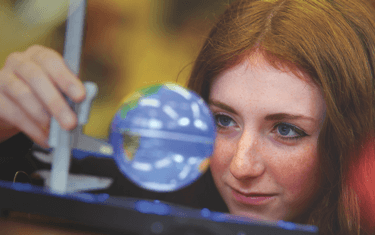

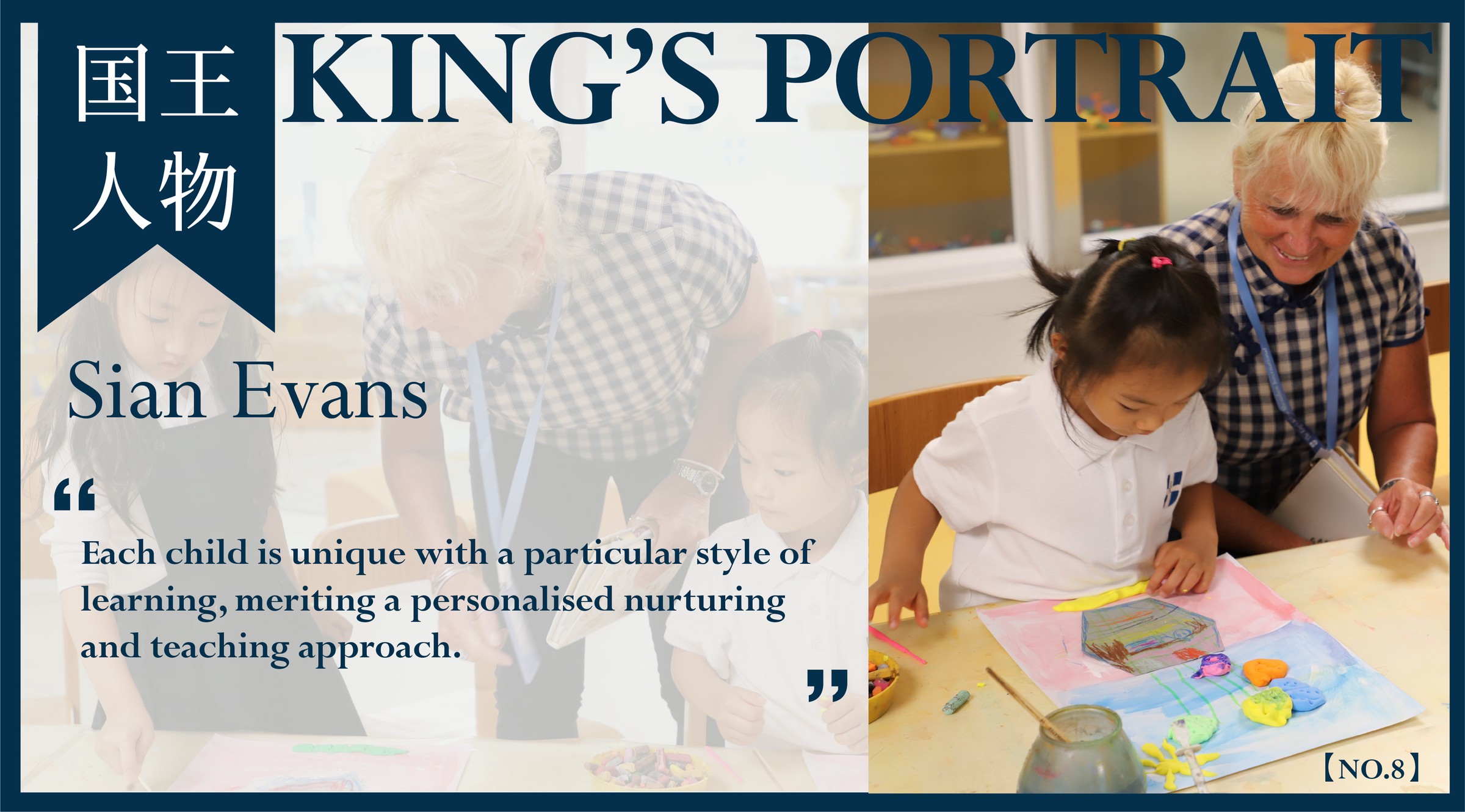
Ms Sian: “Each child is unique with a particular style of learning, meriting a personalised nurturing and teaching approach.”
King's Portrait NO.8
Part 1: About personal background
Q1: Why did you choose teaching as your career?
A: Teaching has been in my family for years. My mother and my grandmother are all teachers, so I think I was brought up as a teacher.
It was definitely a natural qualification and career for me.
I have a huge fondness for children, particularly to see them progress into the kind of adults that we would like to see, people who will look after our world.
Q2: Could you tell us about your education experience?
A: My work experience for over 25 years has been all in education. Within that time, I have travelled the world.
My qualifications were from the United Kingdom, and that's where I first started.
From there, I went to Hong Kong to teach for a year, and it was an interesting transition from Inner City School in London to a private international school in Hong Kong, contrasting the different upbringings and backgrounds of the children.
From there, I moved back to the UK where I taught in a number of different age groups, but very much in the primary and early years' sector.
From the United Kingdom, I moved to a private school in Vancouver, Canada.
Following that, I moved to an international school in Beijing where I gained a great deal more experience, especially with the early years.
I next went to Malaysia where I was head of a Primary School, and from there I went to Harrow Shanghai, my current position, as Head of Primary/Prep School.
So, as you can see, I have had a fair amount of experience both as a teacher and as a leader.
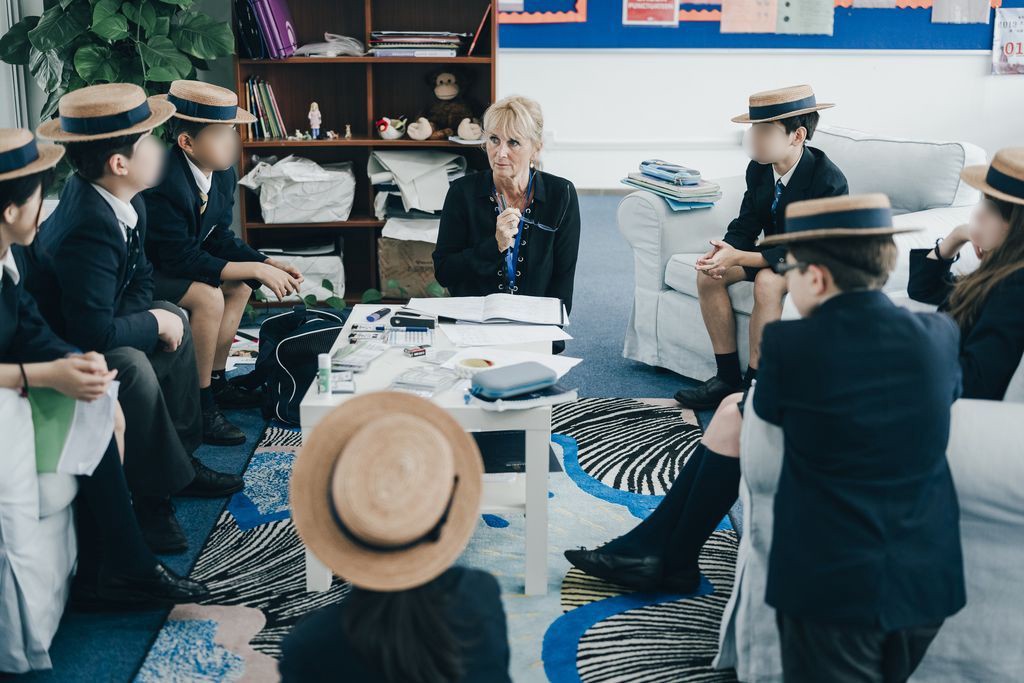
Part.2 About education
Q3: What qualities do you think you possess that makes you such a wonderful educator or teacher?
A: OK, first is a huge passion for teaching, as well as for the children together with their parents and where they come from.
I am a parent myself. Having moved around in my own educational career, I moved my children too, so my own children have had different educational experiences and come across different teachers’ visions, values and educational philosophies.
I think I've learned what's good and what's not so good.
And the other thing is to be creative. I have really good ideas and very quick initiative.
I like to see changes that I have done, everything from organising sports events to putting on performances, to rearranging the whole school in terms of aesthetics.
So, I am a very creative person as well.
Q4: What were your main achievements as a member of a leadership team?
A: OK, well, I brought in a lot of the extra curriculum. Within the school, you have a curriculum that you have to teach, but there is more to learn than just what is in the curriculum.
You have to give them a broader sense of learning, and I also think about these questions: what is the purpose of learning? Why? Why are we learning? What is the purpose of school?
If the children get a clear understanding of what that is, they are more likely to want it.
So, I created what we call the Super Curriculum, which is beyond the curriculum.
We brought in things for the older children like understanding money, which is not just a matter of counting onwards, counting backwards or simply counting coins or counting notes, but understanding money in terms of what money can buy.
And why is it necessary? The same is true for anything within maths that becomes a little bit more if we can build on it.
And language too, the children are communicators. But are they efficient communicators?
So, we bring in things like asking children to present, even if it is just an assembly, to have the confidence to speak in front of others whether it be in Chinese or English.
And there’s drama. Drama is a great way to make children confident because they become a character that they are not themselves anymore, really enabling them to let themselves go. So, we build on our drama, too.
Q5: What aspects of the British education system and teaching methods do you see to be more beneficial to the children, in particular Chinese children, over other education systems?
A: Character education. I am not saying that other education systems do not have character education.
I think it is very much in the forefront of British education.
We want our children to achieve academically obviously, to eventually get to a point where they can choose the university that they want.
No door is closed. But we also want our children to be good people.
People with integrity. People that are honourable and courageous, but people who have humility.
People that you want to be with. People that you want to learn from.
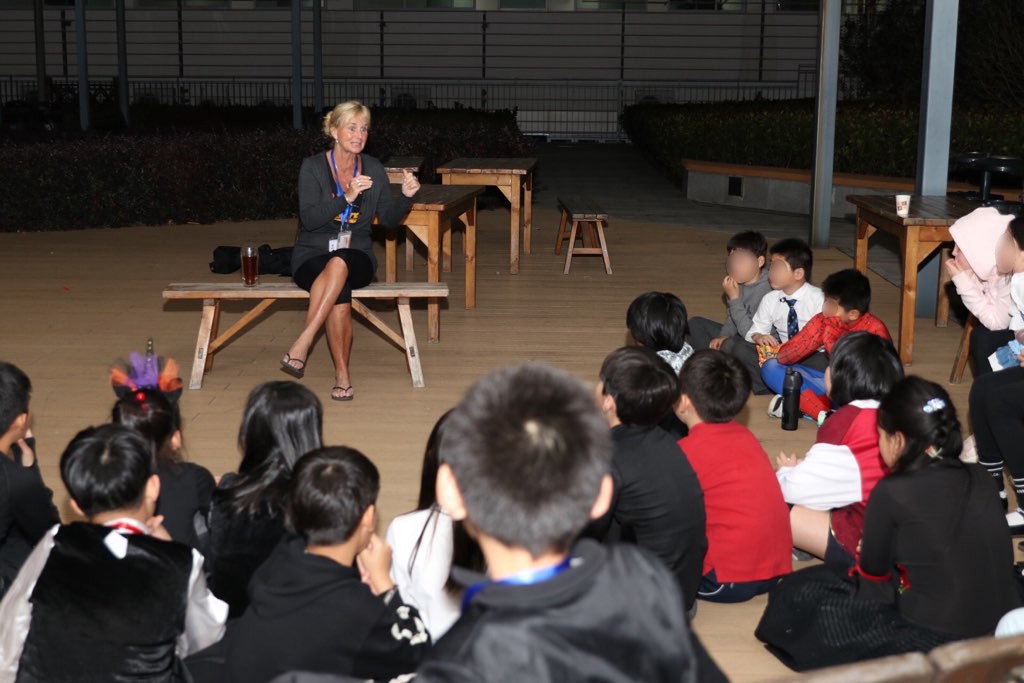
Q6: Could you tell us about your teaching philosophy?
A: Every child is an individual: that is my central philosophy.
It is up to a teacher and a parent to discover what each child is passionate about and how they learn.
Once you are able to do that, they are almost putty in your hands. It is just so easy from now on.
Q7: What do you see as essential to developing high standards which enable children to succeed and to grow?
A: Well, as I've mentioned before, there have to be many opportunities and resources.
But also, there has to be a fair amount consistency among the teaching staff.
For example, what goes in one class, which is acceptable, might be unacceptable in another class, and we really need to be teaching the same values across the board.
Q8: The KSS Pre-Prep/Kindergarten is a bilingual school. What do you think are the advantages of bilingual education, and in your view, is it best to achieve?
A: I think it is absolutely fabulous.
I've learned a lot just this morning, being in the international school environment where you have Chinese children coming into learning English, and that English is something that the parents want.
You know, it’s fine to sat that I want my child to speak English.
But what can happen is that their English level goes right up, but their Chinese comes down. It’s important to master both of them at an equal level.
Part.3 About leadership
Q9: What qualities do you think you possess that enabled you to become a leader?
A: When you become a leader, it's more than just being a teacher.
I mean, the children are always the focus, but you've also got to look after the teachers.
If you look after your teachers, your teachers will look after your children.
So, you want to do the best for your teachers, not just to make sure that they are happy, but happy in their job.
They feel that they are being developed. They come to us as a teacher, they want to leave as a better teacher.
So, what we can put in place for these teachers is the type of professional development they require.
They need to feel that they are supported and that they are trusted with the children they have.
They feel that they can approach the leaders at any point for any help that they need.
They need to feel valued and acknowledged for their good works.
But at the same time, as a leader, you have to be very observant and assess your teachers, because we all make mistakes.
We do not know everything. You have to know when to step in and guide those teachers to go the right direction for the children that they teach.
So as a leader, I think it is very important to look after your staff. And as a leader, it is very important to look after your parents.
The parents need to feel that they are thought of and cared about.
When you see the parents staying at the gate as the children are entering the school, you can see that the parents are perhaps feeling a little bit lost.
I think the parents need to know that we do care and you do not have to leave just yet if you need to talk. So, I have an open-door policy for both staff and parents.
Part.4 About KSS
Q10: Why did you choose to join KSS?
A: I know the school, The King School Canterbury.
My niece actually went to the school in the UK. So, I know the school very well.
I know its reputation, and it has an extremely good reputation. So that was easy for me.
Currently, I am head of a Prep School in Shanghai, and that is from Grade 4 to Grade 7.
It is also a Middle School. As much as I am enjoying this job, my first love is early years, and it is time for me to come back to early years.
That's why I am here.
Q11: What challenges do you think you may face, and how do you plan to overcome such challenges in our school?
A: Challenges. It is a new school. It is only going into its third year.
There are always challenges with a new school.
We have still got to make our name and mark in Shenzhen, where there are a lot of other schools.
I do not see them as negative challenges. It is a very positive. This is my third start-up school.
So, it is something that I am very used to. Of course, you have to get everything in place.
You have to get the right teachers. You have to make sure that the parents know the vision of our school, and that they have chosen the school wisely.
I do not see anything as a negative challenge. I think everything is very positive.
Q12: That's good. I hope you still think so after you join. So, let’s go to the final question. How would you apply your previous experience to achieve your vision, as our Co-Head?
A: Like I said, this is my third start-up school, so I understand what challenges we will face.
I understand how these can be solved. I have a lot of experiences as a leader which help me to solve things that are not done quite right, and lots of experience of things that are done very well.
I think what I can bring to this school is basically experience.
Q13: What do you want our school to become?
A: A place where parents are very happy to leave their children in our care, and where the children come bouncing into school happy to be there.

